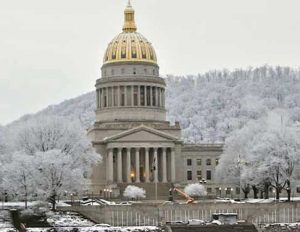WV Surface Owners’ Rights Organization: Final Legislative Update
From an Article by Julie Archer, WV SORO, April 9, 2017
Today is the last day of the 2017 legislative session. You’ve probably heard that the industry’s re-branded forced pooling legislation (SB 576) was officially declared dead earlier in the week by the chair of the House Energy Committee. With the session coming to a close, the other bad bills we alerted you about previously, including the “right to trespass” bills (SB 245 and HB 2688), have also met their demise. This is good news.
Unfortunately, this also means that the various bills on WV-SORO’s legislative priorities list did not make it through the process in time to become law. Although we are disappointed we weren’t able to see these policies passed and implemented this session, we’re pleased to report that our “land reunion” bill (SB 369), which would begin to reverse the trend of separate ownership by giving surface owners a first chance to own any interest in the minerals under their land that are sold for non-payment of property taxes, made it further than it ever had before, having passed the Senate 33 to 1. We are especially grateful to the WV Food and Farm Coalition for their support of this initiative and helping to make the progress we made this year possible.
However, most importantly, we want to thank all of our members and supporters who have took action over the past 60 days. Your calls, emails, and letters to legislators, as well as your letters to the editor made a tremendous difference. Thank you speaking out and making your voices heard. We couldn’t have done it without you.
We also want to thank everyone who renewed their membership in response to our recent newsletter. Your support keeps us going! If you haven’t renewed your membership we hope you’ll continue your financial support of WV-SORO by sending your dues to 1500 Dixie Street, Charleston, WV 25311.
If you didn’t receive a copy of the newsletter in the mail, please email julie@wvsoro.org with your mailing address and other contact information so we can update our records. Thanks again for your continued support.
Fracking Permit Guide and Webinar
Our friends at the WV Rivers Coalition (WVRC) have created a Citizen’s Guide to Fracking Permits in West Virginia to help citizens submit meaningful comments to the WV Department of Environmental Protection on the various permits the agency issues for activities related to natural gas development. This includes well work permits, construction permits related to pipelines and other infrastructure, and permits related to waste disposal (injection wells and landfills).
WVRC and Downstream Strategies will be hosting a free webinar on the guide on Wednesday, April 12 at 1PM.
Citizen involvement helps to hold permitting agencies and companies accountable to the law. It’s also an important way to speak up for the value of our land, our waters, and the well-being of our communities. Click here to register for the webinar.
- > > > > > > > > >
- West Virginia Surface Owners’ Rights Organization
1500 Dixie Street, Charleston, West Virginia 25311
304-346-5891
Join WV SORO


{ 1 comment… read it below or add one }
WV Governor signs (bad) water pollution bill
From an Article by Jake Zuckerman, Charleston Gazette-Mail, April 11, 2017
West Virginia Commerce Secretary Woody Thrasher spoke in support of a bill (HB2506) that could allow more pollution into the state’s water earlier this month. The bill was signed into law by Gov. Jim Justice on Tuesday.
Gov. Jim Justice signed a controversial bill Tuesday that could allow for increased pollution discharges into the state’s rivers and streams.
The legislation (HB2506) changes the way the state Department of Environmental Protection sets pollution discharge limits.
Under the bill, the department will now use an average stream flow, or “harmonic mean” when setting pollution discharge limits, instead of the low-flow stream figure they have been using.
Though the state’s legal limit for actual contamination won’t change, because average flow rates will always be higher than low-flow measurements, the law will give more leeway to industrial polluters.
The bill faced stiff opposition along the way from Democrats in the House and Senate — who attempted to amend the bill several times to narrow its scope — and from some members of the public.
Along with changing measurement standards, the bill also allows mixing zones (points where discharges enter the water and begin the dilution process) to overlap, pending approval from the DEP with the Environmental Protection Agency’s review.
The bill passed through the House of Delegates March 1 on a 63-37 vote and through the Senate on a 20-13 vote.